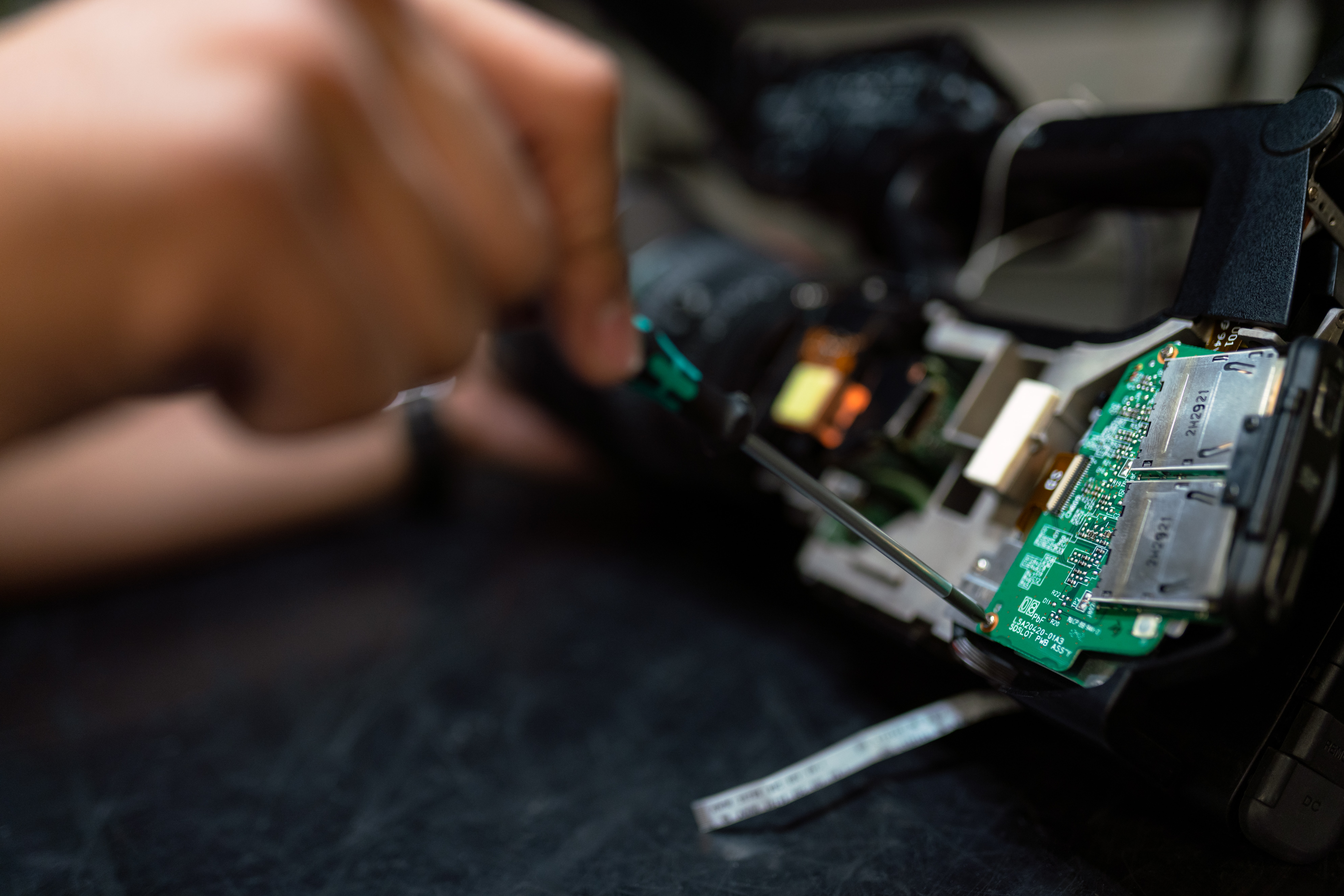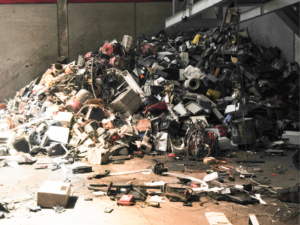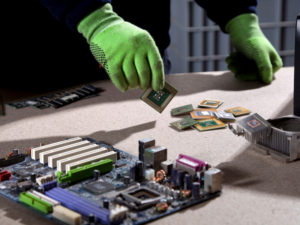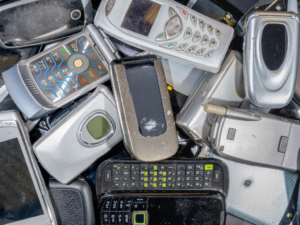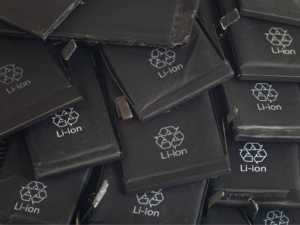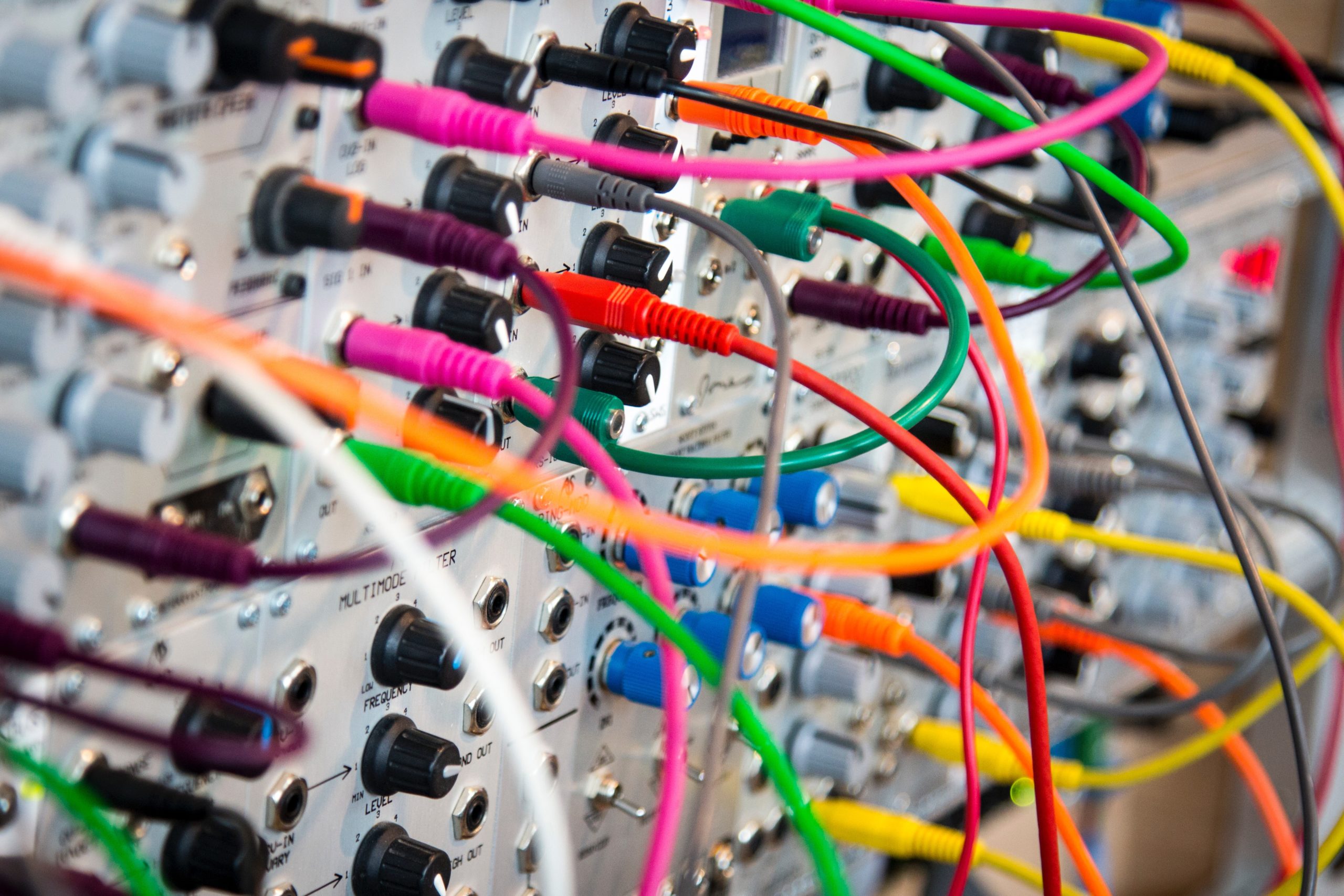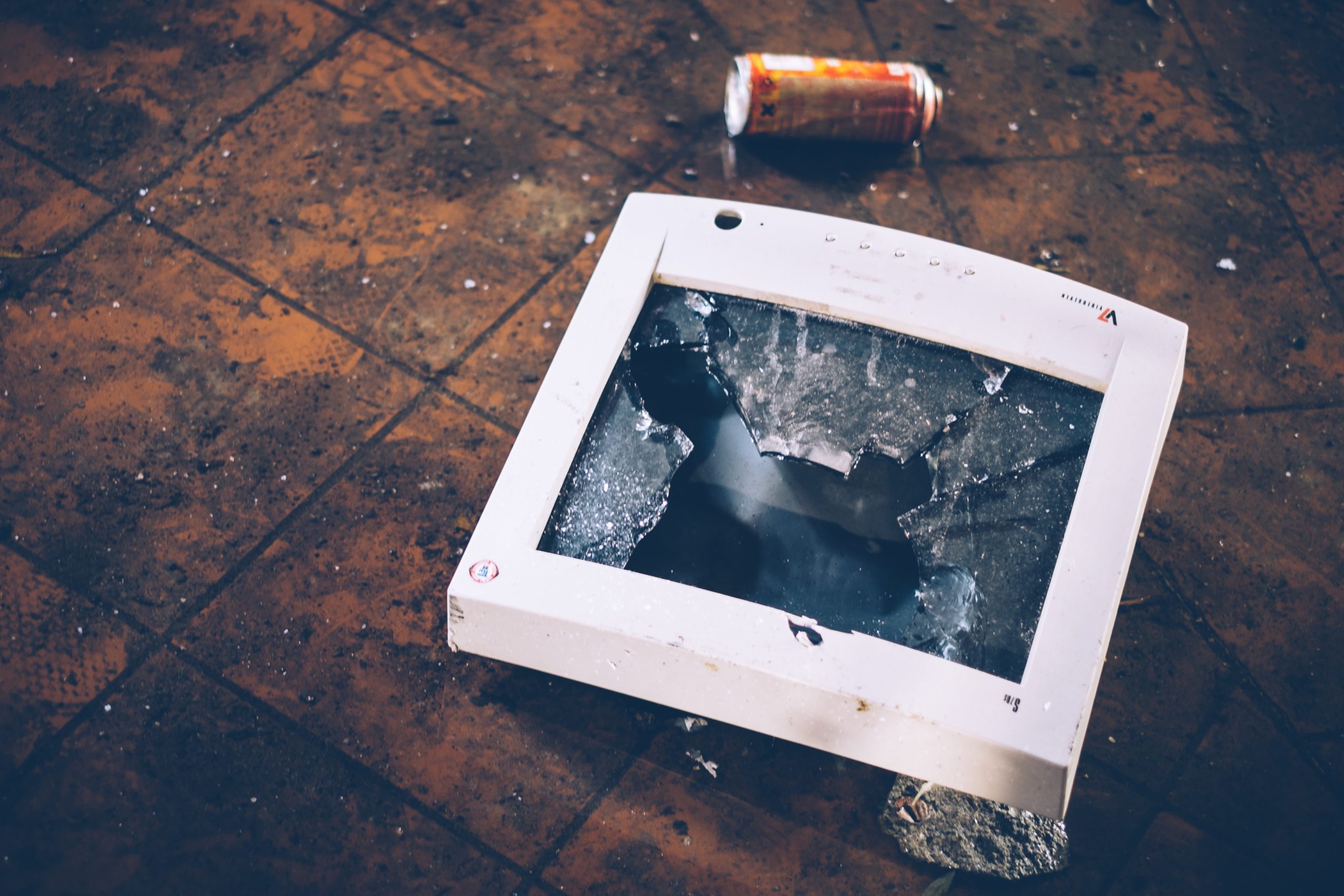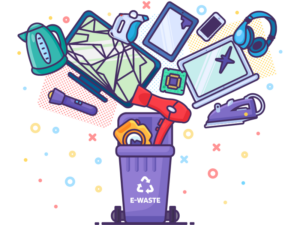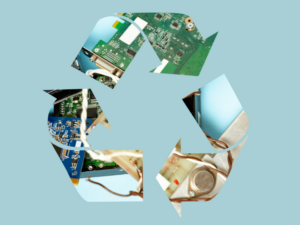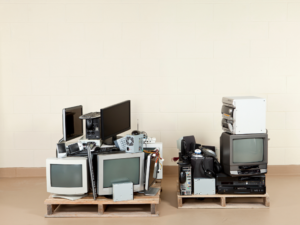Why Your Business Should Use a Data Destruction Service
Before you recycle business computer hardware, you should know how essential data disposal is. The storage media within your computers contains confidential information from your operations, employees, and customers. Should these files fall into the wrong hands, the consequences could be disastrous.
When a professional service destroys the drive of your computer, you no longer have to worry about unauthorized users accessing the confidential information. Read on to learn more about data protection and the benefits of destruction services.
The Realities of Deleting Files Yourself
Data disposal can cost more time and effort than many realize. The methods available to you within your office or home — such as wiping the computer — are often insufficient since certain technology can recover the data.
April Maccario, founder of Ask April, reiterated our point here. "Simply deleting your data does not make it unrecoverable or unsecured; it may still be recovered and exploited."
Things can get even more complicated with server recycling since your servers are housing sensitive information from several sources. Deleting all of this information yourself can be very time-consuming. Using a destruction service ensures that your data is unrecoverable and that you're not wasting your time on an unreliable method.
Comply with Data Protection and Privacy Laws
Even if your hardware doesn't have business documents on it, chances are some of your storage media has information about employees, customers, or management.
As most businesses know, strict laws surround what you can do with this information. It's important to make sure documents are unrecoverable not only because of safety but also because these laws extend into deletion regulations.
Alex Claro with Credit Donkey shared with us, "It is not only advantageous for organizational considerations, but it is also a legal need for enterprises to dispose of data properly. As a way of keeping compliance with federal privacy legislation rules, data must be completely erased from your computer systems and servers after a specific amount of time, and the process of destroying data must go beyond just dumping files in your desktop's trash bin."
If you even unknowingly violate these regulations, your business could face some serious legal trouble.
Avoid the Backlash from Stolen Information
The consequences of poor document protection stretch far beyond legal trouble or expensive penalties.
Eduard Klein, digital growth specialist, stressed the importance of this. "We must understand that business data, may it be about the business entity or their clients, should not be leaked to another person or entity. Doing such may ruin the reputation of the business and might put them in a problematic situation such as being sued because of negligence to keep client’s information confidential."
Every state has laws that require businesses to notify their customers when they have a security breach of personally identifiable information. On top of answering to the law, your company will have to hold itself accountable to your consumers as well.
Not only can this event cause a loss of customers — and a significant loss of sales — but you may also receive negative publicity when news websites or blogs hear of the breach. The loss of potential customers may be even greater than the loss of current customers if your files fall into the wrong hands.
Regardless of the impact on your image or sales, a data breach is a serious concern for your customers. Nobody wants to worry about a stranger having their sensitive information; both you and your customers deserve to know that confidential files will be kept confidential. Using a professional service brings assurance that you can't get through other information deletion methods.
Build Your Company's Credibility
The number of companies that have breaches due to poor data protection is no secret to consumers; many people are disappointed with how carelessly businesses handle their private information. A business that can prove that it prioritizes security will stand out among the many that aren't, making proof of professional data deletion a credit to your company.
Thinking about data protection from your customers' perspectives can be helpful when deciding whether to use a deletion service or not. Stolen records are usually a costly affair for businesses, but many can bounce back. On the other hand, your customers may not be able to forgive you if you irresponsibly recycle business computer hardware.
In short, it's in a company's best interest to build a dependable image when it comes to customers' information.
Certification of Destruction Offers Peace of Mind
With all the dangers surrounding incorrect data disposal, it can seem like a nerve-wracking process. Even with tips on how to protect your data before you get rid of your computer, sometimes you may not be sure if you've truly wiped all files.
However, using a professional service committed to protecting your information can ease many of the fears a business may have when recycling electronics.
When a trustworthy company destroys the drive of your computer, they may give you a certification of destruction. Allan N. Buxton, director of forensics at SecureData, told us that recieving a certification of destruction is the only way he truly feels confident that his business information is protected. "Most commercial services will even offer documentation and certification of its destruction, when the destruction of truly sensitive data has to be accounted for." At Newtech, this certification of destruction means no one can recover your information — a guarantee your electronic documents won't fall into the wrong hands.
Protect Your Information with Newtech Recycling
There are many services where a professional touch can make the difference between a job well done or a disaster, and data deletion is one of them.
Don't unauthorized individuals use or steal your electronic documents. Contact Newtech Recycling today to learn more about our data disposal services.
Why You Should Care About E-Waste
We all use electronic devices every day. As anyone who’s ever owned any sort of electronic device knows, they aren’t meant to last forever. Some of us might use our devices as long as they continue to work, which might only be a few years, but many like to upgrade to new models frequently.
Regardless of why you buy new devices, we all need to upgrade eventually, which leaves us with many unwanted and unusable devices. Many don’t know what to do with these devices and think they can simply be thrown away, but getting rid of your old electronics is not that easy.
Due to electronics being discarded incorrectly, a huge amount of electronic waste pollutes landfills worldwide. According to the World Health Organization, of an estimated 53.6 million tonnes of e-waste produced globally in 2019, only 17.4% was formally collected and recycled. That means 44.3 million tonnes of potentially hazardous materials were left to harm the environment and people here.
It’s extremely important that everyone is educated on the dangers of e-waste and how they can prevent it. Learn more about why you should care about e-waste and how you can help save the planet.
E-Waste Produces Harmful Toxins
You use electronics all day, so surely they’re safe, right? As long as your devices are being maintained, they are safe for you to use and be exposed to. However, this isn’t the case for electronics that end up in landfills.
Soil and Water Pollution
When electronics are improperly disposed of (illegally dumped or taken to landfills), they can seep toxic materials. Some of the toxins found in e-waste include heavy metals like lead and mercury, which can leach into the soil. When this happens, the toxins can further spread, eventually contaminating crops and the livestock that feed on them. If we eat the crops or livestock, we may inadvertently consume these toxins. When toxins leak into the soil, they can also spread to bodies of water, making many communities’ water sources unsafe and harming ecosystems.
Air Pollution
In addition to toxins spreading through the soil, many landfills burn waste, which is extremely to the air quality. When electronics are burned, they release harmful toxins and greenhouse gas emissions into the air, exposing workers and nearby communities to them and harming their health. Not only are those close to the landfills affected, but once these toxins are in the air, they can travel far, putting many others at risk and harming the environment.
Throwing Out Electronics Wastes Materials
The effects that toxins from e-waste have can be devastating. While this is a huge issue and should be enough to make anyone concerned about the growing e-waste problem, it isn’t the only reason you should care. Even when your device is no longer usable, many of its elements and materials can still have another life.
Your everyday devices contain precious metals like gold, silver, and copper that can all be used to create new devices without the need to source new materials. These nonrenewable resources are finite, which means they will run out someday. Allowing old electronics to sit unused in landfills is, in simple terms, a huge waste.
Using the materials we already have access to and recycling unwanted electronics has many benefits. Since these materials are already sourced, creating new devices from recycled materials is much easier. By making an effort to recycle your old devices, you can help lower the demand for new materials to be sources for future products. You might even choose to find a project that can help you upcycle electronics yourself or find a local program that uses old electronics.
Economic Aspects of E-Waste
The economic implications of e-waste are as significant as their environmental impact. With millions of tonnes of electronic waste generated globally each year, there's a hidden treasure trove of resources being squandered.
A Potential Goldmine
We already discussed how throwing out old electronics wastes materials, but we haven’t considered the cost and potential profit in recycling e-waste versus throwing it away. The truth is, your old electronic devices are more valuable than you might think. Containing precious metals like gold, silver, and copper, these discarded items hold immense economic value.
To put this into perspective, recycling just one million cell phones can recover approximately 35,000 pounds of copper, 772 pounds of silver, 75 pounds of gold, and 33 pounds of palladium. With the 53.6 million tonnes of e-waste generated in 2019, the lost opportunity is staggering. The estimated value of raw materials in this unrecycled e-waste is nearly $47 billion.
The Cost of Neglect
In addition to the potential cost positives of recycling negatives, it’s also important to look at the financial implications of not recycling e-waste. When these electronics are improperly disposed of, the financial loss extends beyond the value of recoverable materials.
The costs associated with environmental cleanup, health care for those affected by toxic waste exposure, and the loss of productivity due to illness represent substantial economic burdens. Moreover, relying on extracting new raw materials rather than recycling existing ones leads to increased mining costs and environmental degradation, further escalating the economic impact.
Closing the Loop: Find a Responsible Electronics Recycler
To ensure you’re doing your part in preventing toxic substances like e-waste from entering landfills, you need to work with an electronics recycling center that will responsibly handle all of your unwanted electronics.
At Newtech Recycling, we know how important the future of tech recycling is in protecting human health and our environment and are committed to providing businesses and organizations with a safe way to dispose of electronics. Together, we can do our part in reducing the amount of e-waste worldwide.
Contact Newtech Recycling today to see how we can help your business recycle your unwanted electronic devices.
Why Data Destruction is Important in Healthcare
While electronics are a huge asset, they can pose many threats, specifically those related to the data. In addition to worrying about hacks, companies also need to be worried about the privacy of their data in old and discarded devices.
Getting rid of electronic data isn’t as simple as destroying a piece of paper. Even if you delete files from your computer, the information still exists and can be recoverable, putting your data at risk. All businesses should be concerned about protecting the private data on their electronics and know the steps needed to fully destroy it.
While data destruction is important in any industry, it’s especially important in healthcare. Anyone receiving any sort of healthcare expects the utmost privacy from their provider, so healthcare professionals need to ensure that they have an effective data destruction plan in place.
Healthcare Data Destruction: Why You Need it
At Newtech Recycling, we know the importance of data destruction in the healthcare field and take all the necessary precautions to protect your private information. Here are the three main reasons why data destruction is important in healthcare and how to properly retire your broken or outdated equipment.
1. It Protects Patients’ Privacy
Healthcare professionals want to give their patients the best care possible. Due to the nature of the healthcare field, those who work in it are held to extremely high standards to serve their patients. When you receive treatment from a healthcare professional, you want to know that your information is safe with them.
Regardless of the care a patient receives, the information healthcare professionals can access regarding their patients is deeply personal and extremely sensitive. If this data is compromised in any way, it can put patients in danger. There are people out there who will try to gain access to this information and cause harm to your patients, so you need to do everything you can to protect their data.
2. Your Reputation Depends On It
Of course, while patients are the top priority of healthcare workers, they also need to worry about their business. To keep a business up and running, it needs to maintain a good reputation. Otherwise, no one will want to utilize their services. Security and safety risks like accessible data can jeopardize a business in the healthcare industry.
Trust is a necessary part of receiving quality healthcare. If patients feel that they can’t trust healthcare workers to handle sensitive information responsibly, it’s impossible to build a relationship that allows patients to be treated and cared for effectively. Healthcare providers with a bad record of protecting their patients’ medical records and other information are going to struggle to bring in enough business to stay open.
3. Data Destruction is Legally Required
It’s extremely important to understand that destroying protected health information isn’t optional. Federal and state laws require businesses in healthcare to destroy electronic data. HIPAA has strict rules mandating what types of data must be destroyed to keep patients’ information safe. State laws may require healthcare providers to maintain patient health records for a certain retention period, so even if a provider is keeping their electronic devices, they still may need this data destroyed if they’re no longer retaining this information.
Destroying data and ensuring that the methods used to destroy it are secure are up to the businesses themselves, so it’s important to ensure the data destruction company or ITAD company you use is reliable. If a healthcare provider is caught not following regulations for data destruction, they could face expensive fines and other consequences.
How is Electronic Data Destroyed?
Destroying electronic data isn’t as easy as simply deleting files from your devices. If you have to protect your data before you get rid of your computer and any other electronic equipment you have, you need professional assistance.
At Newtech Recycling, we have a few steps in our data destruction process that ensure no one can access it in the future:
- First, we remove the hard drives from all of your devices.
- Then, once we have the hard drive, we wipe the data from it using a software purge and hit it with an electromagnetic pulse that will destroy any data stored on it.
- To finish the process, we physically shred hard drives and computer drivers, ensuring that no one can retrieve any data from them.
Our certified data destruction services are the best way you can ensure your sensitive data is fully destroyed when it’s time to recycle your old equipment.
Ensure Your Data is Fully Destroyed
Data destruction in healthcare is necessary to protect your patients and your business. Not just ethically, but legally, too.
To improve the way your business handles retention and destruction, let Newtech Recycling’s data destruction services help. We understand the importance of data destruction in healthcare. Newtech Recycling takes every precaution to ensure that you can safely recycle your unwanted electronics and not have to worry about anyone accessing confidential information.
If you’re in the healthcare field and need to recycle old medical equipment, we can help. We will ensure that all data stored on your electronics are carefully destroyed in a legal manner. Contact us to learn more about our healthcare data destruction services in New Jersey, Connecticut, New York, and Pennsylvania.
How Upcycled Batteries Can Keep Smartphones from Destroying the Planet
There’s a good chance that nearly everyone you know has a cell phone. Smartphones have become a major part of our lives today, and we’ve grown to rely on them heavily.
However, most modern cell phones will only last a couple of years, and maybe less if you always upgrade to the latest model. This means that millions of smartphones are constantly being replaced. But what happens to old phones?
Because cell phones contain potentially toxic materials, they must be handled as hazardous waste. This means that you should not throw away smartphones in the regular trash. Instead, you should recycle your cell phone. When recycled, up to 80% of a discarded cell phone can be reused.
At Newtech Recycling, a New York ITAD company, we know the negative impact that materials like cell phone batteries can have when they aren’t disposed of properly. That’s why it’s our mission to help people recycle cell phone components responsibly.
Keep reading to learn why it’s so important that your smartphone battery gets recycled properly.
Why Should You Recycle Cell Phone Batteries?
To understand why it’s so important for smartphone batteries to be recycled, you have to know the problems they can cause when they aren’t.
Most of us are aware that the batteries we use every day contain dangerous chemicals, but it’s not usually something we need to worry about often. These chemicals are safe while they’re in well-maintained devices, but this stops when they go to landfills. When batteries get thrown out in landfills, leaks happen, which creates a huge environmental risk.
Chemicals from smartphones pose a huge threat to environmental and human health. When these chemicals begin to seep out, they can make their way through the soil, impacting nearby crops and animals, and end up in nearby water supplies.
If garbage in landfills is burned, these chemicals from non-upcycled batteries can also pollute the air. This pollution will eventually impact everyone worldwide. Toxic waste like this could potentially cause cancer and contribute to global warming, but the full effects of electronic waste are still unknown.
By recycling cell phone batteries, you can help prevent this pollution from occurring.
Learning how to make your smartphone last longer can also help get more use out of your current phone, which is better for the environment than replacing phones frequently. While properly recycling smartphone batteries is important, we should also work to ensure that all batteries are disposed of correctly.
Depending on your state, it could even be illegal to throw away certain types of batteries.
Upcycled Batteries Use Fewer Natural Resources
Preventing dangerous toxins from harming us and our environment may be a good enough reason to recycle your unwanted phone batteries, but it’s not the only reason.
Recycling smartphone batteries is important for the same reason it’s important to recycle any other materials – it gives them a chance at a second life.
Some parts of smartphones and their batteries can still be used even after you’re done with them. These materials are often still perfectly fine to be repurposed, so there’s no reason to allow them to waste away in landfills.
Did you know that materials sourced from old batteries can be used to make new batteries in the future? That’s why upcycling batteries is so important.
Not only does recycling enable us to reuse the materials we already have for something else, but it prevents us from having to source more materials to produce new batteries.
Batteries and other elements of electronic devices aren’t renewable energy sources. There is only so much of these materials available in the world, so what we have is all we will ever have. While we may still be able to access more of these materials, for the time being, this may not always be the case.
Recycling cell phones and upcycling batteries allow us to use what we already have to help us prevent needing to source more materials for future products. This is also a great energy solution, as reusing already available materials typically requires less energy than having to source new ones.
Take Responsibility for Your Old Cell Phone Batteries
Toxic waste like smartphone batteries poses a huge threat to all of us, but it’s something we can work to prevent. While recycling e-waste like batteries isn’t as simple as tossing it in the recycling bin at your house, it’s still extremely easy, so there’s no reason not to do it.
If you have old smartphones in your house or your current phone is on its way out, and you’re wondering, “what to do before destroying my old phone,” find a recycling service that can help.
Choose Proper Smartphone Disposal with Newtech
At Newtech Recycling, we work hard to do our part to ensure that our environment isn’t harmed by e-waste by providing reliable electronic recycling services. In addition to smartphone disposal, we also offer tv recycling, computer disposal, and other e-waste services.
If you want to know how to recycle old electronic devices or to learn more about the services we offer, contact Newtech Recycling today.
How to Dispose of Your Old Chargers, Wires, and Cables
It’s hard to find an office or house today that isn’t filled with chargers, wires, and other types of electrical cables. While some of these old wires might still be useful, there’s a good chance that the majority of them aren’t. As we get new electronics and the models change, our old cables and wires can become irrelevant, but many people still keep them around.
Even if you always responsibly recycle your unwanted devices like using an old printer disposal service, things like old chargers and cables can linger behind. You might think that you might still be able to use these at some point, but if they’re old, you never touch them, and you don’t even have the device that goes to them anymore, you’ll likely never need them again. Other times, people just don’t know what to do with their old wires.
If you’re one of the many with old wires and similar items lying around, don’t just toss them in the garbage. Like old electronic devices, chargers, wires, and cables are still classified as e-waste that must be handled carefully when it’s time to get rid of it. If you have unwanted wires and cables, you must know how to properly dispose of them.
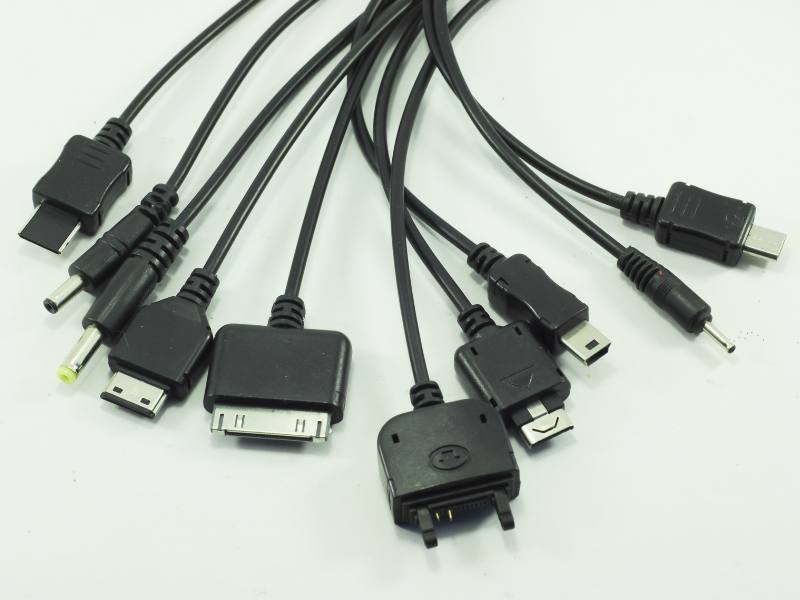
Find the Right Electronics Recycling Center
Old chargers, wires, and cables might look like useless items to you, but they might still be extremely valuable, even if you can’t use them anymore. Many of our everyday wires and cables contain precious metals, just like electronic devices. Even if the wires themselves aren’t usable anymore, these materials can still serve a purpose. By recycling these unwanted items, recycling centers can salvage the parts that are still usable for them to be remade into new items in the future. This prevents the need for new materials in limited supply from being sourced and keeps valuable materials from being wasted in landfills. Recycling these items also ensures that you’re keeping toxic chemicals that can come from them out of landfills, protecting the environment and human health.
Radu Vrabie, founder and marketer at Power Bank Expert, always makes it a point to recycle old wires. “Chargers, cables, and old wires shouldn’t be thrown in the trash can along with other types of home waste,” he says. “In my case, I have a strategic can for wires and all kinds of electronic trash, which I take to the local recyclers after every few months. Although it isn’t much, most of the metal recyclers would pay you something for the effort – especially if you have copper wires in the bin.”
Fortunately, many of the places that recycle your other old electronics may be able to take wires and cables too, but you’ll want to check with them just to be sure. So, if you’re looking for where to dispose of old laptops, you should also make sure that they’re able to take the cables and charger that came with them. In some areas, you might even be able to drop these items off at an electronics store that will recycle them for you if you don’t have easy access to a recycling center.
Recycling computer cables, old chargers, and wires, is ultimately the best way to dispose of old electronic cords. But what if your cords still work?
Donate Your Useable Old Chargers and Cables
While you might not have use for these items anymore, there are people who can benefit from them. Like many other electronics that are old but still in good condition, some of your old chargers, wires, and cables might be able to be donated. There are some who may have the devices that go to them and can still use them.
If you look, you might be able to find programs in your area that take items like these for different reasons, such as STEM programs that can use them for teaching purposes. While recycling is extremely important, it’s also important to help get the most use out of our electronic devices before getting rid of them.
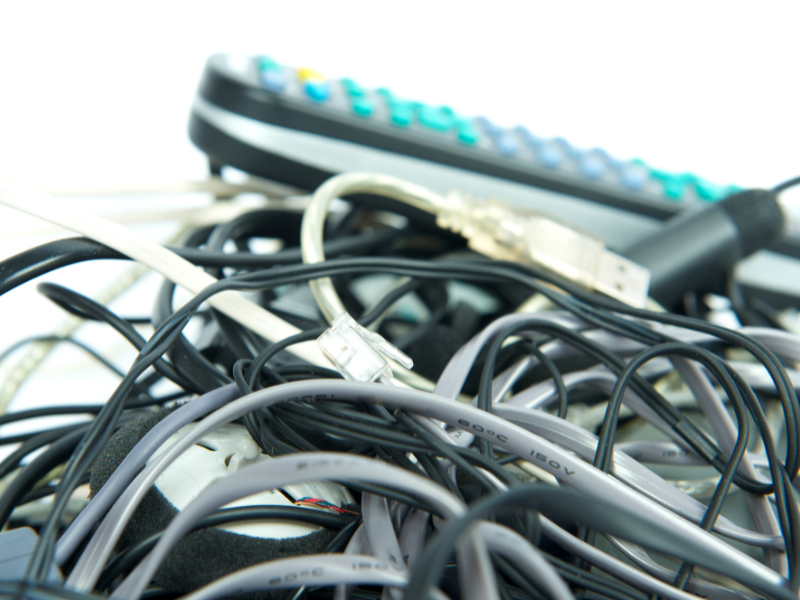
See if Friends or Family Can Use Them
Before getting rid of items like chargers and cables, see if you know anyone who can use them. You might not have the models that use them anymore, but if they’re still somewhat recent, you might know someone who can use them. Many of us tend to break or lose our cables, so having extras lying around can be useful, as long as you know they’re going to get used. If these items are in good condition and can be used by people you know, you might as well give them away so they can get more use out of them.
Recycle Computer Cables, Old Chargers, and More
We spoke with Julie Stobbe, a Trained Professional Organizer with Mind Over Clutter. Julie explained how easy it is to find a local recycling company to help you dispose of tech products, including your wires and cables, the right way. “I can drop off electronic cables and computers and they will destroy the hard drives, small electrical tools, and appliances.”
If you’re one of the many people with tons of old chargers and individual wires piled up around your house, now is the time for you to finally get rid of them. However, you must ensure you’re getting rid of them responsibly, just like you would with any of your other unwanted electronic devices.
Recycling and donating your old wires and cables allows you to protect the environment and prevent e-waste and gives you the chance to clear out some clutter. Whether you’ve had the items saved up for years, or you’re thinking “I’m destroying my old phone and need to take care of its charger and wires,” there are options for you to handle it responsibly.
Electronic Cord Recycling at NewTech Recycling
Are you a business in New Jersey, Connecticut, New York, or Pennsylvania with more old wires and electronics than you know what to do with? We can help! We offer corporate e-waste recycling and cleanout services in the tri-state area. We also offer national recycling services.
Ready to take the first step towards responsible electronic recycling for your business? Contact Newtech Recycling to learn more about how to dispose of electronic cords, wires, chargers, and more!
E-Waste Laws to Watch for in 2024
E-waste is a growing issue that affects us all. While some might dispose of old electronic devices in the regular garbage, thinking it does not impact them, e-waste seriously threatens the environment and our health. These old electronics might be taken somewhere we can’t see, but that doesn’t mean they won’t eventually negatively impact our lives. Millions of tons of e-waste are produced yearly as people improperly dispose of their unwanted electronic devices.
With such a massive amount of toxic waste occurring worldwide, something must be done to protect our future and planet. If we don’t work towards stopping electronic waste from entering landfills, this problem will spiral out of control. Electronic recycling laws are essential for reducing the amount of e-waste in landfills.
Learn more about the e-waste laws and trends to watch for in 2024 and why we need legislation to help reduce e-waste.
What are the Federal Laws for E-Waste?
The United States is one of the world's largest producers of electronic waste. Yet, unfortunately, there are still no federal laws that require people to recycle their used electronics. Much of the e-waste produced in the US also doesn’t stay there.
Most e-waste from the US gets shipped to other countries around the world, with China receiving most of these hazardous materials. However, there's a silver lining. Recent legislative efforts, such as the US Congress's move to ban e-waste exports to China, indicate a growing acknowledgment of the e-waste challenge and the need for responsible management.
Another positive is that while the US has no current federal laws mandating proper e-waste disposal, many countries globally have strict e-waste regulations. For example, The European Union has continued to advance its Waste Electrical and Electronic Equipment (WEEE) regulations, with newer directives focusing on the circular economy and aiming to enhance recycling rates.
Developing countries, especially in Africa and Asia, are also taking steps to manage the growing e-waste challenge. Initiatives such as the E-Waste Academy for policymakers and small businesses play a crucial role in these regions.
Do Individual States Have E-Waste Laws in Place?
The federal landscape might need a comprehensive e-waste mandate, but individual states have taken the initiative to address the e-waste challenge head-on. As of 2024, 25 US states and Washington, D.C. have implemented some form of e-waste legislation. These laws vary in scope and requirements, with some mandating the recycling of e-waste while others outright banning its disposal in landfills.
For instance, Pennsylvania is actively considering overhauling its e-scrap recycling program to make it more efficient and user-friendly. Such state-specific initiatives underscore the importance of localized solutions in the absence of a nationwide directive.
However, while these state laws are a step in the right direction, a significant portion of the US still lacks specific e-waste regulations. This disparity underscores the importance of businesses and individuals being proactive, irrespective of their state's legal requirements. Whether mandated by law or not, responsible e-waste disposal is crucial for the environment and public health.
If you’re a business or organization looking to recycle old electronics in a state with e-waste laws, you must ensure you’re going through the proper channels. When it’s time for your organization to get rid of its IT equipment, look for a reliable ITAD company that recycles responsibly.
What Will Be Done Going Forward?
With no current federal laws in the US requiring waste management for e-waste, many people wonder what the future holds. Of course, there are many all over the world who are committed to reducing e-waste and are working towards creating more ways to educate the public and encourage them to prevent e-waste.
As we transition into 2024, the e-waste landscape is poised for several transformative shifts, both in terms of technological advancements and regulatory frameworks:
- Technological Innovations: A noticeable trend indicates that electronic waste in the U.S. is starting to decline due to technological innovation and changing consumer preferences. This either suggests that devices are becoming more durable or consumers are becoming more conscious about their electronic consumption and disposal habits.
- Easier and Cheaper Recycling: While some regulations, like the one that made electronics recycling easier and more affordable from January 1, 2023, have already been implemented, it's essential to monitor their impact and effectiveness as we move further into 2024.
- E-Manifest System: The EPA's e-Manifest system is set to announce user fees for fiscal years 2024 and 2025. This system aims to track hazardous waste shipments electronically, and the upcoming fees could influence the e-waste recycling industry.
- Global Movements: While not directly related to the U.S., it's worth noting global initiatives that could influence domestic policies. For instance, the European Parliament has adopted a law for a common charger for mobile devices by 2024, aiming to reduce e-waste and promote sustainable consumer choices.
State-Specific Initiatives: Individual states might introduce or modify their e-waste regulations. Businesses and individuals must stay updated with their state's specific requirements and changes.
Despite these upcoming changes, much work still needs to be done to prevent the e-waste problem from growing. While laws requiring all e-waste to be recycled are extremely important, there are more ways of tackling this issue. For example, one reason so much e-waste occurs is that devices become obsolete much faster than they used to.
In some parts of the world, there are efforts to help people repair their old divides to prevent them from being replaced so often. Making repairs more accessible can extend the lives of our devices and reduce the demand for new products, resulting in less e-waste. Many still need to be educated on the importance of recycling their old electronics. These are devices we use safely every day, so they may not realize the dangers they can have in landfills.
While it can take time for new legislation to come into place, many are concerned about e-waste and are taking steps to help reduce it. More people are becoming aware of the dangers of e-waste, and as education on the subject becomes more widespread, we could begin seeing more efforts to stop it. Making recycling services more accessible is also an important part of preventing e-waste going into the future.
Recycle Your Unwanted Electronics Responsibly
Regardless of what laws there are regarding recycling electronics, we all need to work on this to help reduce the amount of electronic waste and toxic chemicals from polluting landfills and our environment. At Newtech Recycling, we can ensure that your old electronics get taken care of responsibly when you’re ready to get rid of them.
We provide services like help with server recycling to businesses and organizations in Connecticut, New Jersey, New York, and Pennsylvania, all of which have state e-waste recycling laws in place. We’ll help ensure that your old electronics are recycled following state laws and that you’re doing your part in preventing e-waste.
Contact us to learn more about how you can recycle your old and unwanted electronics responsibly with an R2 recycling company to help prevent e-waste.
Earth Day 2021: Six Ways to Help Save the Planet
At the end of every April, we as a global population observe Earth Day to remember the planet Earth and devise creative, fun, or even easy ways to give back to the place we call home.
It’s incredible to think about, but Earth really is a fragile place, despite its size and immense power. From ground and water pollution to global warming, things have been happening to the Earth for the last 150 years or so that have started to harm it.
This has been due largely to human activities, such as the heavy industries that produce greenhouse gases that force the planet to hold onto more heat. Mathilde Degletagne with BizBiz Share explained “Saving the planet is not just riding a bike or putting stuff in the recycling bin from time to time. Companies have to do their part. Because they represent a big share of global pollution.”
Then, add in the fact that many people across the world throw things away that should actually be safely recycled. We often see this with electronic waste, or e-waste, which usually contains heavy metals and other materials that pollute soil and water and can destroy entire habitats.
You may not think that the simple act of you throwing your old hard drives in the trash can actually have an impact on the environment, but it is this attitude throughout the world that really does affect planetary health.
Therefore, in honor of this recently past Earth Day, we at Newtech Recycling would like to document six ways you can do your part to save the Earth.
Of course, you know one way is to keep recycling those old electronics. We are happy to help out with this. Get in touch with us today to start recycling the right way!
1. Watch Your Water
Saving the planet encompasses all kinds of areas, from recycling to reducing greenhouse gas emissions to limiting water consumption.
Water use is easy to lose control of, if we’re being honest. We’ve probably all done it: let the sink run a bit longer than we knew we needed, or taken a longer shower than necessary. Bernadette with Uke-Tuner told us“Don’t leave a tap running. When there are leaks, get them fixed.”
The thing is, Earth’s water supplies are finite, and even treating wastewater for reuse eats up a lot of additional energy that has the potential to harm the environment. Bernadette also stressed “Water is a precious resource that is also limited - so we need to save as much as we can.”
Why not make things easier on the planet and your wallet by reducing your water usage wherever you can? Take shorter showers, turn the water off when brushing your teeth, and don’t run the washer or dishwasher unless absolutely necessary.
You can also forget about buying all those big packages of water bottles and opt instead for a single refillable bottle.
That reminds us of something, as we’ll mention in the next point.
2. Reduce Your Plastic Use
Look, we know what it’s like: plastic is everywhere. People use water bottles, product packaging, and all kinds of other plastic materials every day. When those things have outlived their useful lives--as in, when we’re finished drinking from a water bottle--it’s really easy and tempting to throw the thing away.
The problem is that plastic takes about 450 years to break down in a landfill, which is where household garbage ends up going. That’s a long time, and it’s why landfills are always stuffed to the brim with a ton of waste.
Instead, why not recycle your plastic in municipal bins? It’s as easy as throwing it in the garbage.
For all that non-household plastic, such as computers and other electronic components, there are e-waste recycling companies such as Newtech Recycling.
Of course, there is a right and wrong way to do everything.
If you’re wondering how to prepare a computer for disposal, Newtech can help you with that. That way, when you’re ready, we can come by and do a mass pickup of everything you have at your home or office.
3. Drive More Responsibly
It’s unavoidable at this point that cars are out there. There are more than one billion cars on the planet right now, and most of them are your typical, gasoline-drinking workhorses.
So how can you be smarter and more environmentally conscious about your vehicle ownership?
Well, beyond shelling out more bucks for a hybrid or all-green transport, one really easy thing you can do is to stop idling there as if you have to be ready to pull away in an instant.
If you’re idling for more than 30 seconds, you’re doing it wrong.
Has anyone ever told you that idling emits as much carbon dioxide as a car in motion? It’s true. If you’re waiting for someone to come out of the house, and they said they’d be right out, but now they’re going on three minutes, turn the engine off!
If your vehicle is off for about ten minutes, that’s a pound of carbon dioxide that won’t be sent freely into the atmosphere to add to our existing greenhouse gas problem and make the Earth warm up faster.
You can also use your vehicle’s cruise control option if you have it and are on the highway for long stretches. This reduces the amount of gasoline you use, since you won’t be doing a lot of speeding up and slowing down.
Everything matters when it comes to the environment, and changing your driving habits is among the easiest things you can do to help.
4. Be Mindful of Your E-Waste
The United States gets rid of almost 400 million electronic items every year. By “gets rid of,” we mean it gets disposed of in one way or another. The truth is that less than 20% of those items is responsibly recycled, and that figure matters.
Your electronic waste--that is, your old desktops, laptops, printers, copiers, hard drives, keyboards, monitors, televisions, and so on--usually contains heavy metals that are toxic to humans, animals, and plants. These metals include chromium, arsenic, cadmium, and lead, to name a few.
When you throw them away, they go to landfills. And if those landfills are older or not properly sealed, then those metals and other materials could end up in the ground. There, they can leach into the soil and pollute the ground and water. And that, over time, can kill plants and animals and even affect humans when the pollution spreads.
But, if you’ve been wondering, “Where can I recycle a printer?” or “How can I safely get rid of my old hard drives?” you can rest assured knowing that there are solutions.
Newtech Recycling is happy to take your old e-waste off your hands and recycle it the right way. We destroy your hard drives in unrecoverable ways, extract the harmful materials from the objects themselves, and safely dispose of what remains.
This is an easy and guilt-free way of eliminating cumbersome waste while knowing you’re helping to save the planet.
5. Plant More Greens
We said before that every little action helps when it comes to being environmentally friendly. It’s a huge planet with lots of people on it, but if you truly want to do your part, you can help the general Earth Day cause by planting some things around your property or wherever you can!
If you’ve got the space, why not plant some trees, shrubs, flowers, and the like? Greens add oxygen to the planet, provide living spaces for all kinds of animal species, and are simply good for the planet in great volumes.
Of course, planting a tasteful tree in the yard will also go a long way toward increasing your property’s value!
6. Reduce Everything You Can
Our final piece of advice is to reduce your use of every type of expendable resource possible.
Go to your utility companies and select the option for paperless billing. This obviously reduces the amount of trees that need to be destroyed for paper production, and it’s also safer. With none of your sensitive account information being sent via mail, you have fewer chances of having your data stolen.
You can also reduce your use of plastic by opting for reusable canvas bags at the grocery store. Every time you take a plastic bag, the store needs to replace it and will produce another one, essentially.
You can reduce the amount of plastic that goes out of that store by bringing your own reusable bags. Then, you will have left no plastic footprint behind there!
There are other, somewhat less practical ways to reduce your energy usage, such as by investing in hybrid cars or solar panels for your roof. These moves are available only to those who can afford them, but if you’re in a spot where you can, why not go for it?
Recycle Your E-Waste with Newtech Recycling
No matter what else you decide to do to help save the planet, recycling your e-waste is going to be huge. All that stuff is useful while it lasts--the printers, tablets, and cell phones--but when you’re ready to upgrade, those items have to go somewhere.
For the planet, don’t let that “somewhere” be a landfill.
By using an R2-certified electronic recycling company such as Newtech Recycling, you can reduce waste and help to save the planet where you live.
For all your electronics recycling in CT, PA, NY, and NJ, turn to none other than Newtech Recycling.
Call us now to get a quote.
How US Laws Support E-Recycling
People all over the US rely on technology every day. However, as anyone who owns any type of electronic device will know, tech products aren’t meant to last forever. In fact, many electronics don’t have a very long lifespan at all, requiring you to buy them more frequently. This also means discarding your old devices, which often creates a serious problem. Most of us don’t see our electronic devices as being unsafe, as we can use them safely every day, but getting rid of them incorrectly can make them extremely dangerous for us and our environment.
E-waste recycling can help stop electronics ending up in landfills, but unfortunately, many people neglect to do this. The overwhelming majority of electronics don’t get recycled and end up leaking toxic waste in landfills. This can have grave effects and is extremely dangerous, leading many to wonder what laws are in place to prevent this from happening.
Why Do Electronics Need to Be Recycled?
Under certain conditions, our everyday electronic devices can turn into hazardous waste. Ryan Smith, an organic scientist and the founder and owner of Ant and Garden Organic Pest Control, shared with us that the Resource Conservation and Recovery Act "controls hazardous waste, including some toxic electronic waste." Electronics can seep this hazardous waste into the soil and water, which is extremely dangerous to those around it and our entire environment. Waste that ends up in landfills is also often burned, which is extremely dangerous for electronic devices. When electronics are burned in landfills, they realize toxic gases that put workers at risk and spread far beyond the landfills. As most electronics currently become waste in developing countries, it’s extremely important to have laws that require this waste to be taken care of properly and to ensure that resources like printer recycling are available to those who need it.
Not only is e-waste a huge threat to our environment, safety, and health, but allowing these devices to go to landfills is extremely wasteful. Many electronic devices contain precious metals like gold and silver, as well as other non-renewable resources. These materials are still usable and in demand, so there’s no reason to allow them to go to waste in a landfill. Recycling ensures that materials like this can be reused and prevent us from having to source new materials to make devices in the future.
What Federal Laws are in Place?
Currently, there is no federal law that prevents people from throwing e-waste into the garbage. While there have been attempts to pass laws that require you to recycle your old electronics, nothing has ever been passed. Although no federal laws prevent this, it’s important to educate the public of the dangers of irresponsibly throwing away electronics and providing e-waste recycling programs to communities.
Vhanessa Hair, sustainability expert with USInsuranceAgents, shared with us the following. "Federal e-waste regulation is non-existent in the United States, but certain states have adopted state-based standards. The Resource Conservation and Recovery Act of 1976 (RCRA) governs most federal laws regarding solid waste. E-waste legislation holds manufacturers more accountable."
Are There State Laws Requiring E-Waste Recycling?
Just because federal laws don’t require you to recycle e-waste doesn’t mean you can’t get in legal trouble for disposing of it improperly. While there isn’t a federal law requiring that electronics be recycled, many states have implemented their own laws over recent years. This makes it mandatory for both individual households and businesses to recycle electronics like desktop computers, laptops, printers, and televisions.
However, you need to be careful regarding who you work with to recycle your unwanted devices. Not all businesses that claim they recycle responsibly and according to the law actually do so. If your state has a recycling act for electronics, you could end up paying thousands of dollars if you’re caught discarding them incorrectly. You could end working with a business that doesn’t actually recycle responsibly, which could end up getting you in trouble, even if you didn’t know. You also need to follow data protection laws and ensure that no private information can be found on your devices, so it’s important to work with a recycling center that also handles data destruction.
At Newtech Recycling, we provide e-waste recycling programs to businesses and organizations in Connecticut, New Jersey, New York, and Pennsylvania, all of which legally require you to recycle your old and unwanted electronics. We can help ensure that all of your old and unwanted devices are taken care of properly.
Ensure Your Electronics are Recycled Safely
It’s extremely important that everyone makes an effort to prevent their old electronics from becoming hazardous waste, and you may even be legally required to have it recycled. If you’re wondering what to do with an old tablet or any other unwanted electronics, Newtech Recycling can help ensure that they end up in the right place. We have an R2-certification, which ensures responsible e-waste recycling. At Newtech Recycling, we’re proud to be our part to help protect our environment and the health and safety of people all over the world.
To learn more about the services we offer at Newtech Recycling or to find out how you can get your old electronics recycled, contact us today.
3 Ideas for Upcycling Old Electronics
So, we talk a lot about recycling here at Newtech Recycling. It’s all about taking your old electronics that you aren’t using anymore and doing something responsible with them.
Most of the time, we’ll suggest that you recycle your electronic waste. Recycling keeps unwanted and discarded electronics from leaching toxic metals into the soil and water, minimizing pollution.
Proper recycling also lets us destroy your hard drives and other devices holding your personal data. It’s a win-win situation.
Recycling is the most common option when it comes to responsibly discarding old electronics such as cell phones, printers, and old TVs. But did you know there’s something else you can do with your broken and unwanted tech? You can try upcycling electronics.
The Importance of Upcycling Electronics
Upcycling is the creative or even artistic reuse of materials you would otherwise throw away, like old electronics. But why would you repurpose old electronics rather than dispose of them?
Mavra Mujeeb, a Content Marketer at Gun Made, shared, “We live in a time where upgrading from one gadget to another is a regular practice, due to which we end up generating a ton of e-waste. According to the United Nations Global E-waste Monitor 2020, in 2019, there was a record level of 53.6 million metric tons of electronic waste worldwide.”
The logic here is pretty simple: instead of endangering the environment with your electronic junk, why not take it and repurpose it into some creepy masks, wall decor, or a new hiding place for your cat?
3 Easy Ideas for Upcycling Electronics
You can upcycle pretty much any electronic product you can think of: computer servers, laptops, monitors, TVs, cell phones, and so on.
If you’ve never heard of upcycling electronics but are interested in getting into it, never fear: we’ve going to cover some great ways to upcycle all that old stuff that’s been sitting in your desk drawers for the last decade.
1. Repurpose Old Electronic Keyboards into Art
Keyboards come and go. Lots of people have desktop computers in their homes. You know, the ones with detached keyboards you can unplug and take with you. When it comes time to upgrade the whole system, you have a lot to dispose of, from the monitor to the tower to the mouse and keyboard.
Well, this suggestion is just for the keyboards. Instead of taking the whole keyboard out to the woodshed at the end of its useful life, why not pry some keys off of it, glue them to a homemade frame, and stick the whole contraption on the wall?
What you have the keys spell out will be up to you. But you can create a piece of art that’s meaningful to you. If you’re a total computer geek, maybe the keys spell the name of the computer from whence they came. Or you could use the numbers to read the year you moved into your house, your family members’ names, or an inspirational quote.
The point is, the possibilities are endless here. We’ve even seen people vertically stack a whole bunch of keyboards on the back of a wicker chair to resemble a certain throne from a certain series.
Oh, now you’re intrigued.
2. Upcycle Old Hard Drives
Now, we get that not everyone will have the tech know-how to disassemble all their old electronic devices to make something new. For those who are a bit more familiar with this kind of thing, let’s talk about hard drives for a minute.
George Mouratidis, a Data-Driven Content Strategist at SIM Tourist, stated, “With the ongoing pandemic, many remote employees have upgraded their working setup and bought new monitors, keyboards, and even hard drives. Personally speaking, you can upcycle your electronic devices and earn money from them. What I usually do with my old electronics is I refurbish them, fix them if they are broken, and sell them. There are a lot of consumers out there that do not have the means of buying a brand-new one, and they are looking for refurbished ones. So this is one of the best things that you can do to upcycle your old electronics.”
With hard drives, we would normally recommend computer recycling due to the potentially sensitive personal data contained on those drives. But, if you’re feeling creative and know how to do it (or you can follow along with tutorials), we have some suggestions for upcycling your hard drives.
One idea is to remove the interior platters and turn them into wind chimes, provided you have at least two or something else that will clang against one.
Legend also has it that people have taken apart their hard drive platters and made wall clocks out of them. You would need the platters themselves, along with a quartz clock movement, AA batteries, and various other bits and bobs.
If you can get this done, you will have produced one of the most fruitful conversation-starters ever likely to grace the walls of your home.
Lastly, you could convert the empty hard drive case into a storage safe for a few small things, such as jewelry. The level of security would be low, but if you’re going for secret and inconspicuous, this would do the trick.
3. How to Repurpose Old CRT Monitors
It’s unfortunate that so many people accumulate e-waste for so long because they don’t know what to do with it otherwise. We just keep it in our homes for decades sometimes because it feels safer that way.
But if you’re tired of seeing your old cathode-ray tube computer and TV monitors from the 90s take up space in your basement, know that people out there have thought up some amazing ideas for them.
Please note: messing around with cathode-ray tubes can be extremely dangerous. If you don’t know what you’re doing, it’s best not to bother!
But, in the interest of just letting you know what’s going on out there, some people have hollowed out their old CRT monitors and used them for different things. For instance, we’ve seen monitors painted in fun colors and repurposed as little homes for cats.
Repurposing Old Electronics For Your Pets
James Albertson, CEO at In Demand Careers, reiterated this point by telling us, “Repurposing old CRT monitors and TVs into pet spaces is an endearing way to get more use out of this obsolete technology. There are quite a few how-to documents on the web that can walk you through converting the casing into a cat or dog bed as well as how to properly and responsibly dispose of the leftover internal components.”
No joke, we’ve also seen CRT monitors used as fish tanks. All it takes is some plexiglass and caulk, but again, you’d best know what you’re doing before trying anything like this. Those old TVs and computer monitors were fine in their day, but they were never meant to be taken apart and explored this way, so always put safety first!
Upcycling Electronics Into Crafts
You can even get crafty and make little keychains or jewelry out of your old keyboard keys or other little metal or plastic pieces. Hey, better they hang harmlessly off your body than seep into the earth and make everything around them toxic and brown.
Rex Freiberger, Co-CEO of Gadget Review, likes to get creative with repurposing old Monitors “One of my favorite projects is taking an old LCD monitor and turning it into a wall display.”
If You’re Not Interested in Repurposing Old Electronics, Recycle Them at Newtech
At Newtech Recycling, we implore you to keep your old electronics out of the landfill and dispose of them properly. You have multiple choices: refurbish and sell them, repurpose them into new items, or recycle them. Whichever method you choose, it’s important to be responsible with your e-waste.
If you are a business in New Jersey, Pennsylvania, New York, or Connecticut and are looking to recycle your old electronics, and office equipment, we can help. Contact us today to learn more about our ITAD Services and e-waste recycling.
The Future of Tech Recycling in 2021
The year 2020 was one of tribulation and change, both in the US and abroad. As the world transitions into a new decade, how will the aftermath of the past year affect the future of tech recycling?
When it comes to recycling technology, strategies and outcomes are often dependent on those manufacturing technology, who themselves cater to those who purchase and use technology. A few decades ago, most households only had one phone, which was rarely replaced. Today, every single person has their own mobile phone, if not more than one, and upgrades happen almost yearly. Desktop disposal rates once dwarfed laptop disposal rates, but that has gradually reversed.
What changes await the tech recycling industry in 2021?
Here are some predictions.
More Demand = More Waste
As our technology has grown more advanced while simultaneously growing more affordable, demand for electronics devices has exploded. Progress is so swift that consumers have struggled to keep up, which has only led to more demand. People want to have the latest and greatest tech products, while the industry renders last year’s models obsolete with extreme rapidity. The result? Increased tech demand leads to increased tech waste.
This cycle isn’t expected to slow down any time soon. In fact, the COVID-19 pandemic may have exacerbated it. According to a report by the consumer research firm NDP Group, 2020 marked a year of historic growth for the electronics market, with sales growing by 17%. Those sales are expected to gain additional 12% growth during the first quarter of 2021. And while this number is expected to lower by around 2% by the end of the year, it still marks a noticeable increase from pre-pandemic sales numbers.
Furthermore, with pandemic restrictions gradually relenting concurrent with the successful rollout of new 5G networks, sales of mobile tech products like phones, chargers, headphones, tablets, and lightweight laptops are expected to surge. Considering that these devices are some of the most frequently discarded—the average consumer replaces their mobile phone once every 18 months—the amount of electronic waste is also expected to climb.
Just as increased tech demand creates increased tech waste, increased tech waste creates an increased demand for tech recycling.
The United States Is Catching Up
Although the total amount of electronic waste is on the rise worldwide, in the US more and more that discarded tech is being recycled. The most recent numbers available from The Global E-Waste Statistics Partnership show that waste management efforts in 2019 resulted in the US having a 15% e-waste collection rate.
Although this number puts the US far behind a handful of countries—Norway which has a rate of 72%, Sweden is at 70%, the UK is at 57%, and France is at 56%—the vast majority of developed countries have similar rates—Japan is at 22%, China is at 16%, Canada is at 14%, Australia is at 11%, and Russia is at 6%. More importantly, however, this number indicates growth. In 2015, for instance, the US e-waste collection rate sat at 12%, with each subsequent year showing consistent improvement.
This means that the US is catching up when it comes to electronic waste management, and even doing better than some other countries. This trend is likely to continue as recycling technology, instead of merely throwing it away, becomes a more visible—and viable—option.
Economic Cost Vs. Environmental Cost
As noted above, educating consumers about the benefits of tech recycling and the dangers of unrecovered e-waste has helped the US make significant headway in improving its collection rate. Indeed, the non-profit Waste & Resources Action Programme has identified several barriers which tend to prevent people from recycling, one of the largest of these barriers being a lack of awareness regarding what items can be recycled, how to do it, and why it’s important.
Whatever progress is made by those within the tech recycling industry, it is up to the consumer to actively choose to recycle. This makes outreach, education, and promotion key pillars of 2021’s e-waste reduction strategy.
One subtle shift in the future of e-waste that has the potential to greatly reframe pro-recycling messaging is the phasing out of legacy technologies. With fewer cathode-ray-tube televisions left in the wild, the amount of toxic substances—lead, mercury, etc.—in the waste stream is slowly diminishing. While that’s a good thing for the environment, it’s balanced out by the surge in computing technologies on the market. This, in turn, is leading to an increase in the amount of rare and valuable metals—gold, platinum, etc.—that are ending up in landfills.
While the environmental effects of e-waste remain a major concern, this shift nevertheless suggests that economical concerns are set to play an increasingly large role in promoting recycling efforts, and that recyclers could benefit from re-emphasizing the economic impact of e-waste.



